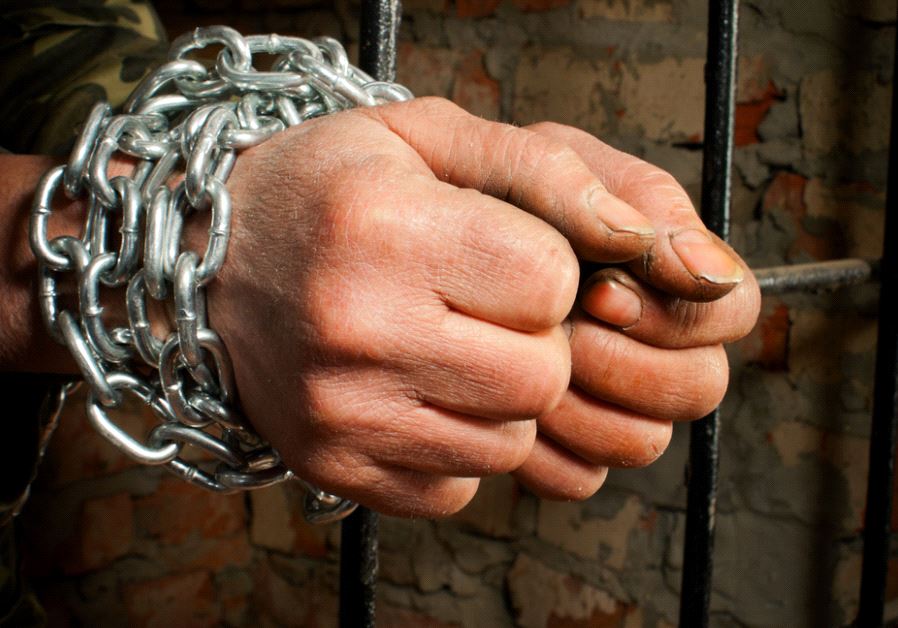Ex-IDF officer: Trump needs to help stop PA terror and martyr payments
Kuperwasser put at some 5,500 the number of Palestinian prisoners serving time for terror-related offenses.
 Man with hands tied up with chains behind the bars (illustrative)Updated:
Man with hands tied up with chains behind the bars (illustrative)Updated: